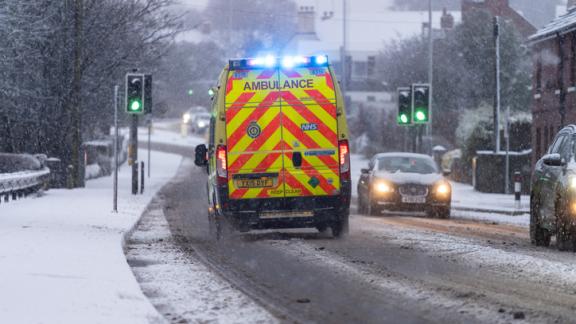Pressure remains high across the NHS in Wales

On current pressures in the NHS in Wales, a Welsh NHS Confederation spokesperson said:
“Like the rest of the UK, health and social care services in Wales are currently under immense pressure due to the combination of winter viruses, staff sickness, the cold weather and a high volume of very ill patients. In particular, the continually rising cases of flu and prevalence of respiratory illnesses are having a huge impact on services, including GPs and urgent and emergency care.
“Across the NHS in Wales, hospitals are opening surge bed capacity where possible and increasing staff capacity on a temporary basis in community services. Most health boards have introduced more stringent infection prevention control measures to protect patients and staff, including reintroducing mask wearing in hospitals and asking people if they are feeling unwell not to visit loved ones in hospital.
“In recent days and weeks, hospitals across Wales have been operating at very high levels of escalation causing long waits for services, including ambulance handover delays. Health boards are also dealing with the difficult decision of whether to postpone non-urgent treatment and surgeries, affecting the NHS’s ability to tackle waiting lists. This is expected to continue in the coming days and weeks.
“The high levels of infections in our communities means the likes of flu, Covid, RSV and norovirus are also circulating within healthcare settings. As well as impacting staff sickness, this means hospitals are having to cohort patients and temporarily close beds and wards for thorough cleaning to prevent further spread to vulnerable patients. In one health board, for example, there are currently around 100 beds closed due to flu.
“Pressures have been exacerbated by persistent numbers of medically fit patients in hospitals awaiting care and support at home before they can be discharged, further affecting patient flow. Health boards are working closely with local authority colleagues to address these delays and help patients who no longer require hospital care to return to their own homes.
“Staff are working tirelessly to treat patients in the most challenging of circumstances. We understand this can be an extremely worrying time for patients and families, but we’d ask that members of the public treat all health and care staff with the respect they deserve.
“We all have a part to play in ensuring we protect our precious resources for those who need them most. With the cold weather causing an uptick in falls, especially in the elderly, we’d ask the public to take all reasonable precautions such as taking care when travelling or outside in icy conditions, stocking up on prescription medicines in advance of them running out, as well as first aid kit essentials to treat common ailments at home, like coughs, sore throats, and diarrhoea. If you can, check in on elderly or vulnerable loved ones and make sure you thoroughly wash your hands.
“Vaccination uptake has been lower than usual this winter. We’d urge anyone eligible to take up the offer of the flu, Covid and RSV vaccines as a safe and effective way of protecting yourself and your loved ones from getting seriously ill.
“Unless there is an immediately life-threatening emergency, the NHS 111 website should be the first port of call for advice, information, and next steps. Your local pharmacy can help with minor ailments such as backache, conjunctivitis or a sore throat and Minor Injury Units should be visited for injuries such as sprains, fractures, cuts, and minor wounds.”


